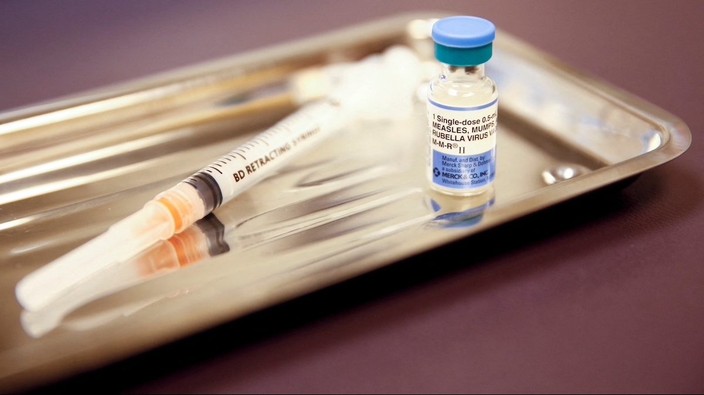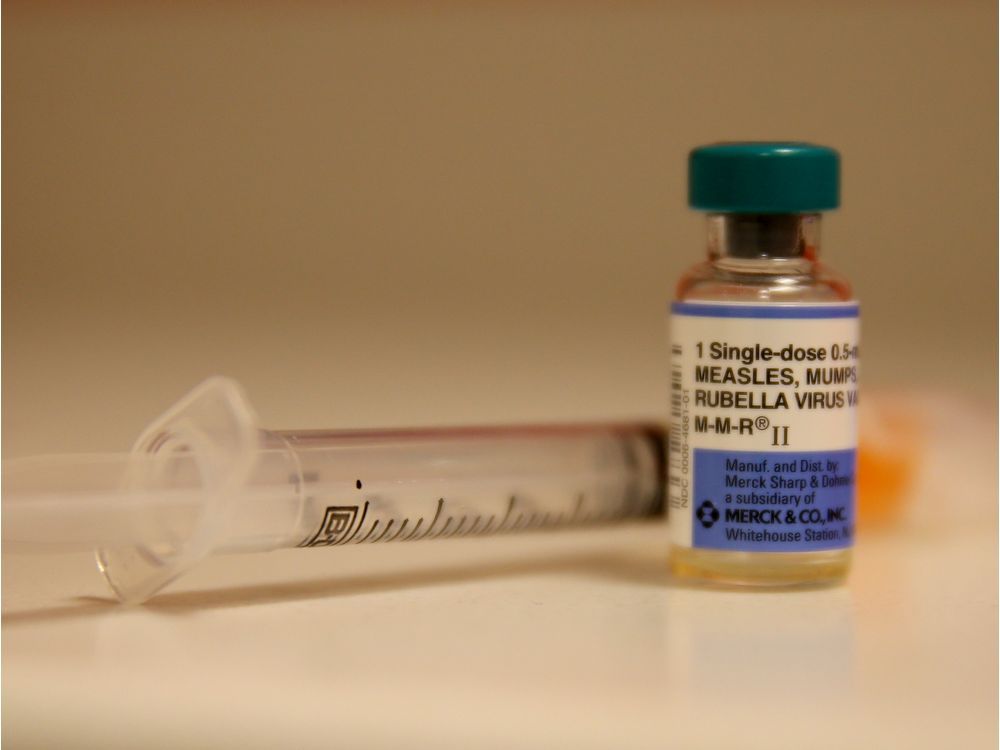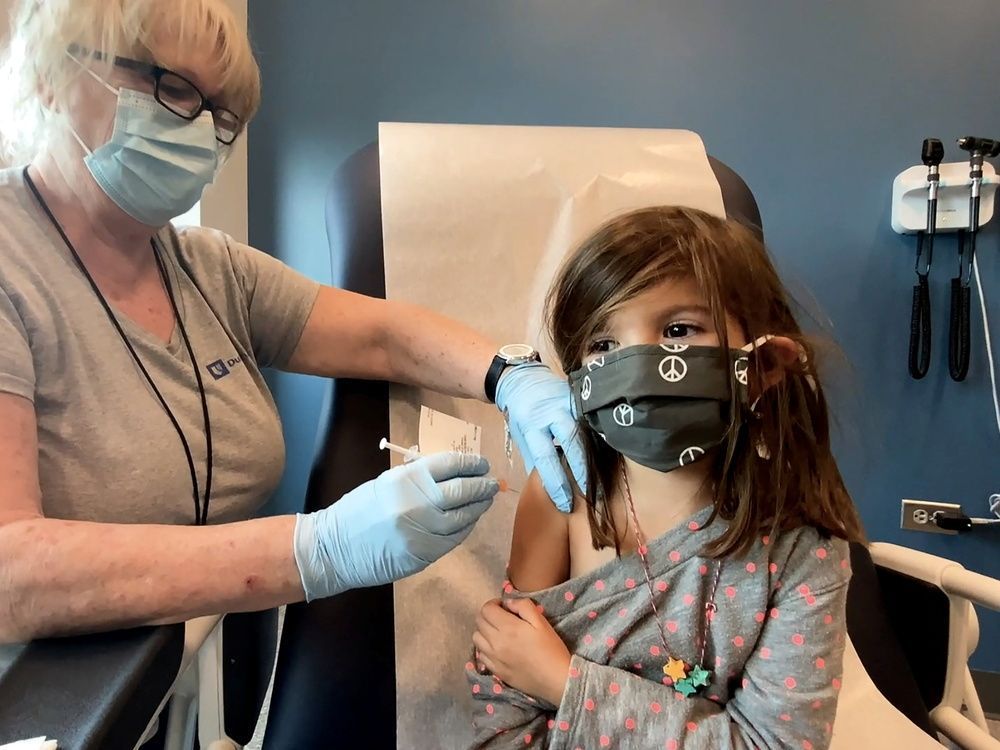measles is a highly contagious acute respiratory illness caused by a virus. symptoms include fever, cough, sore throat, irritated eyes, and a telltale rash,
according to the mayo clinic
— but crucially, these signs don’t usually show up until about 10 to 14 days after exposure. by the time a child has measles symptoms, it’s likely they’ve already spread the virus to others.
children in canada are protected from measles by the
mmr (measles mumps rubella)
vaccine, which is generally given in two doses — once to babies between 12 and 15 months old, and the other before the child starts school.
pandemic slowed routine vaccinations
the pandemic caused the most significant slowdown to routine vaccinations in the last 30 years, the
new york times reported
in july. vaccination rates against measles fell to 81 per cent, along with the dtp3 vaccine which protects against
diphtheria, tetanus and pertussis. herd immunity only occurs when the vaccination rate is 94 per cent.
in 2019, there were 13 million children who hadn’t received even one dose of basic childhood vaccines — that number has now increased to 18 million.
“this is an emergency for children’s health — we have to think about the immediate stakes, the number of children that are going to die because of this,” said lily caprani, head of advocacy for unicef, told the times. “it’s not in a few years’ time; it’s quite soon.”
most of the children who miss out on vaccines are children who are living in poverty. the highest numbers of unvaccinated children are in
india, nigeria, indonesia, ethiopia and the philippines.
 3 minute read
3 minute read









